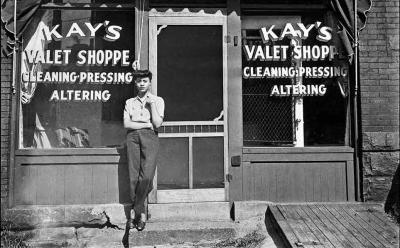
The story of the Montgomery bus boycott usually focuses on two key figures: Rosa Parks and Martin Luther King. But without the development of car pools and the support of small businesses, the boycott could not have succeeded. These stories demonstrate that the support of small black-owned businesses helped the civil rights movement to succeed in a variety of ways. King, for example, traveled widely during the civil rights movement. One magazine estimated that King travelled nearly 780,000 miles per year in the late 1950s as he preached against segregation. Such wide travel would have necessitated considerable material support. Local businesses played a key role.
In Mississippi, black business owners were also on the front lines, enduring pressure from the white community. In addition to preaching at four different congregations, Reverend George Lee ran a prosperous printing business and a grocery store, positioning him as a prominent leader in Belzoni, Mississippi’s black community. He was the first African American in Humphreys County to get his name on the voting list and organized the Belzoni, Mississippi branch of the NAACP in 1953 along with his friend Gus Courts, another grocery store owner. Lee and Courts registered hundreds of black voters in a county where no black person had voted since Reconstruction.
Read the rest at Institue for New Economic Thinking
Go to the GEO front page

Add new comment